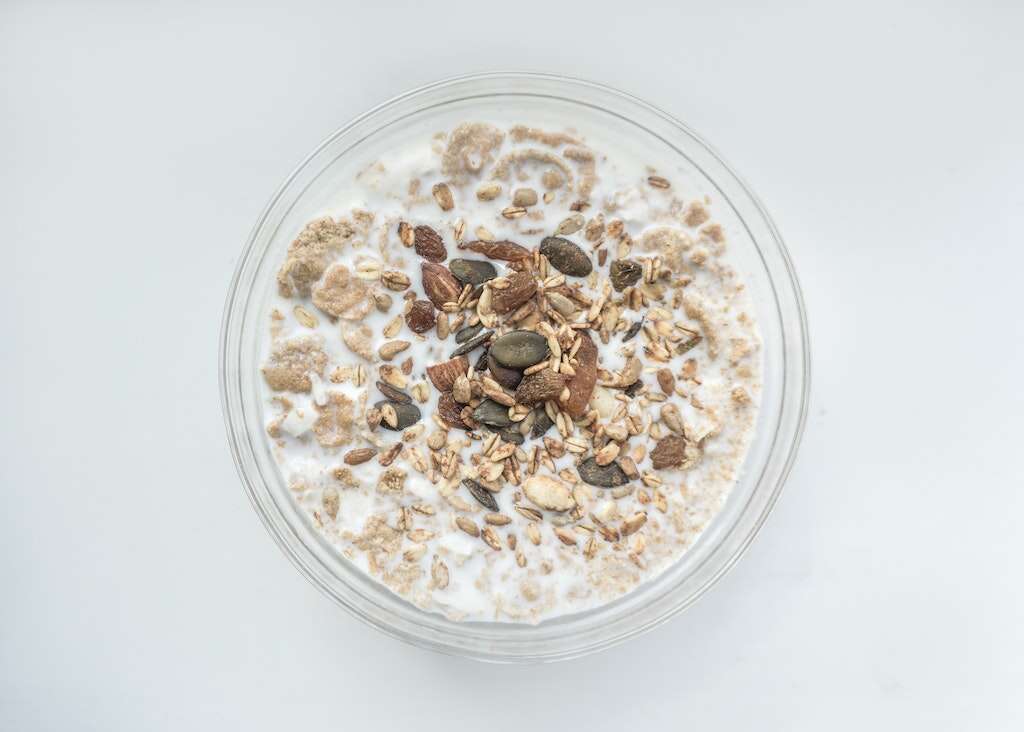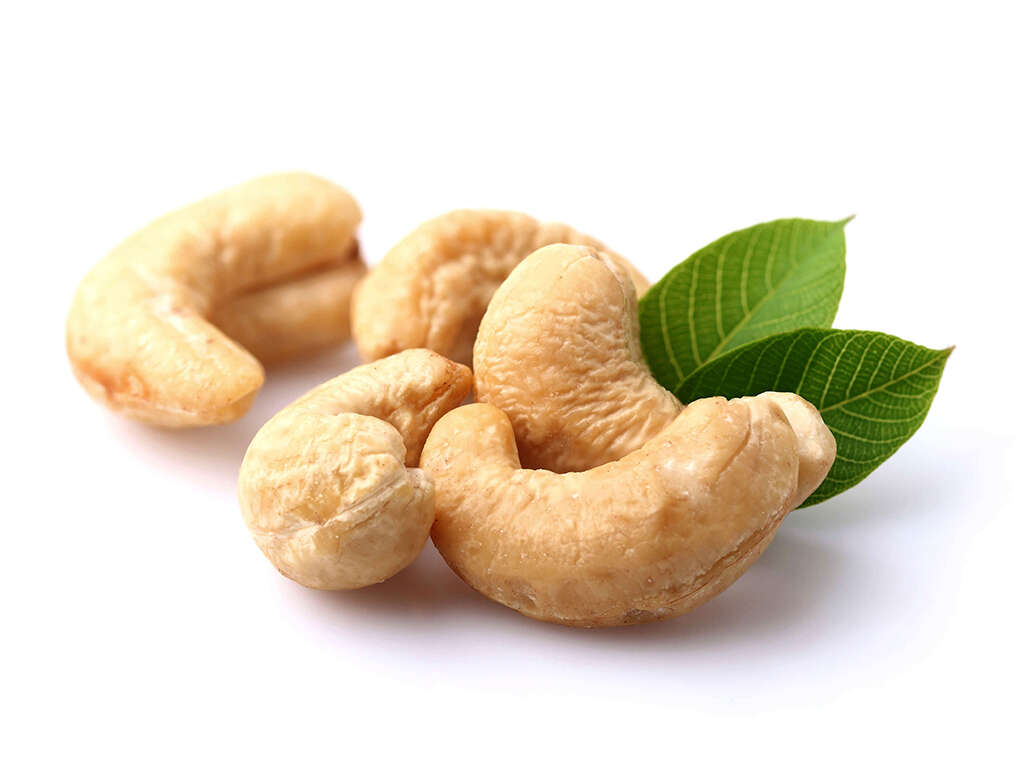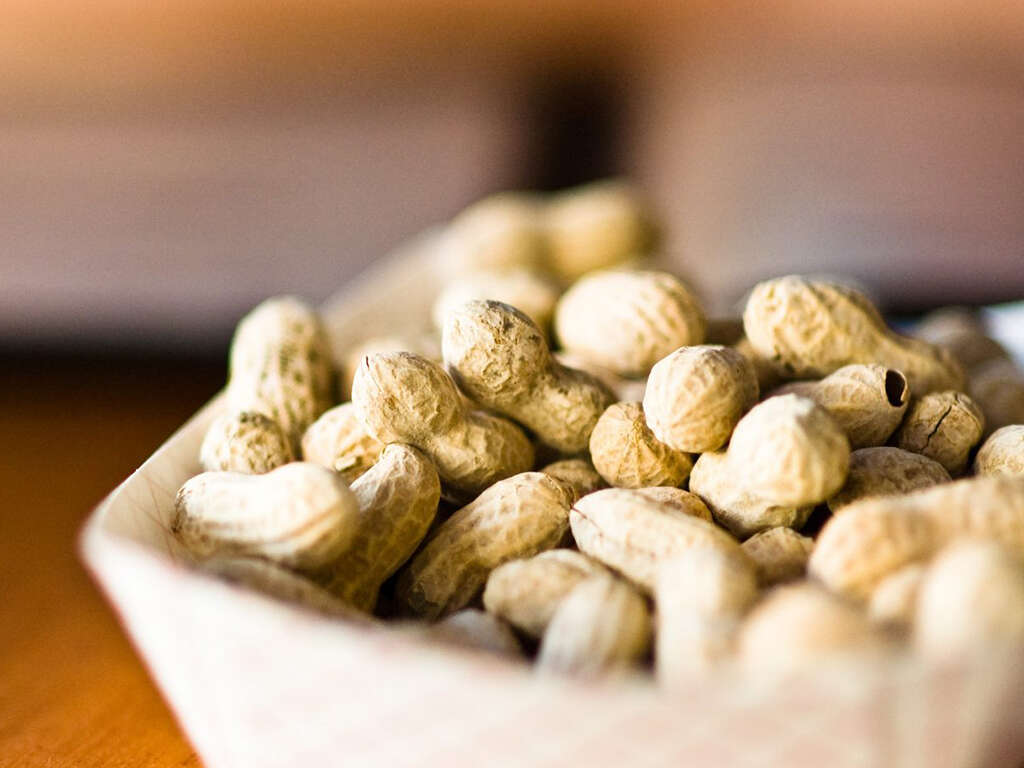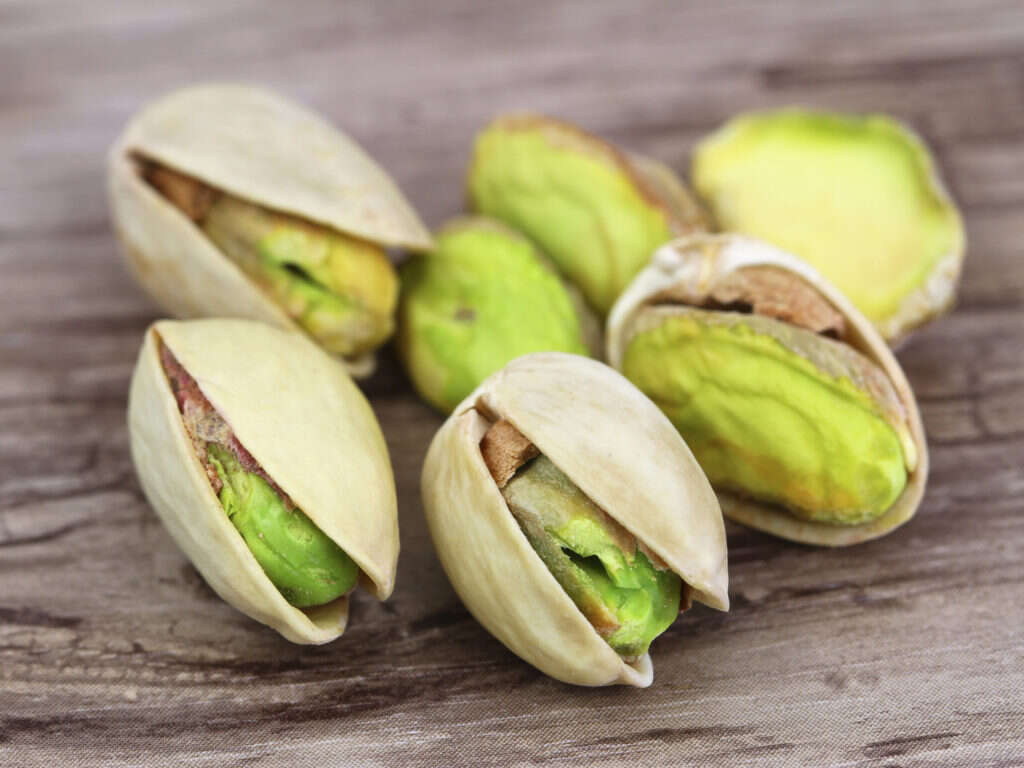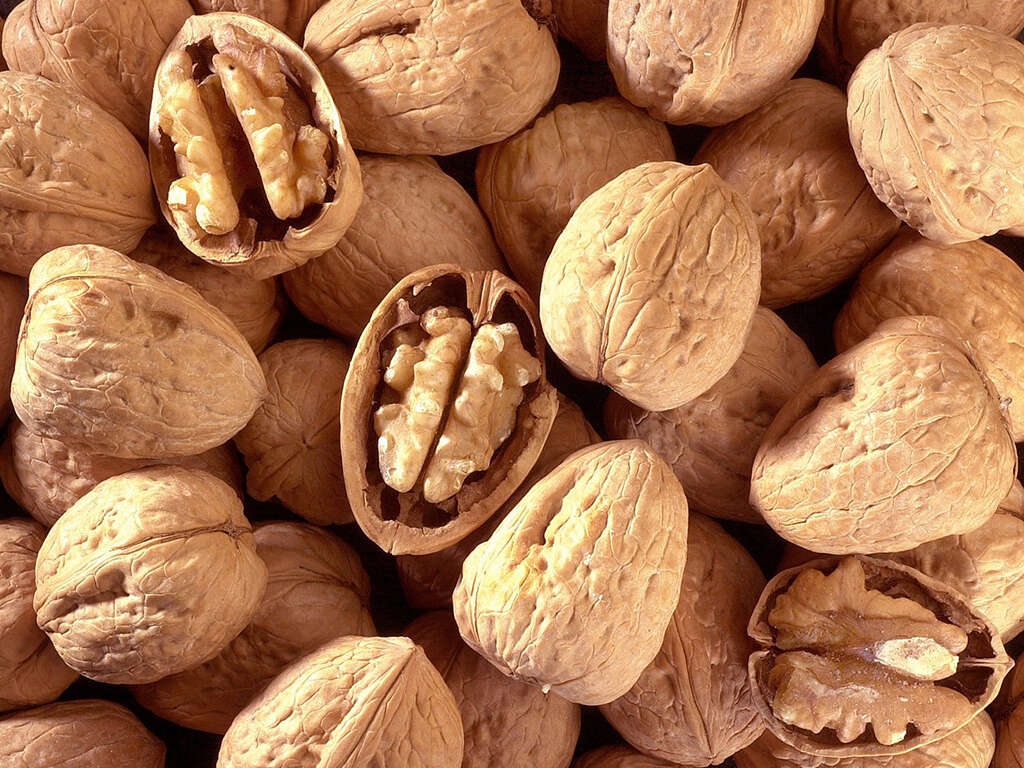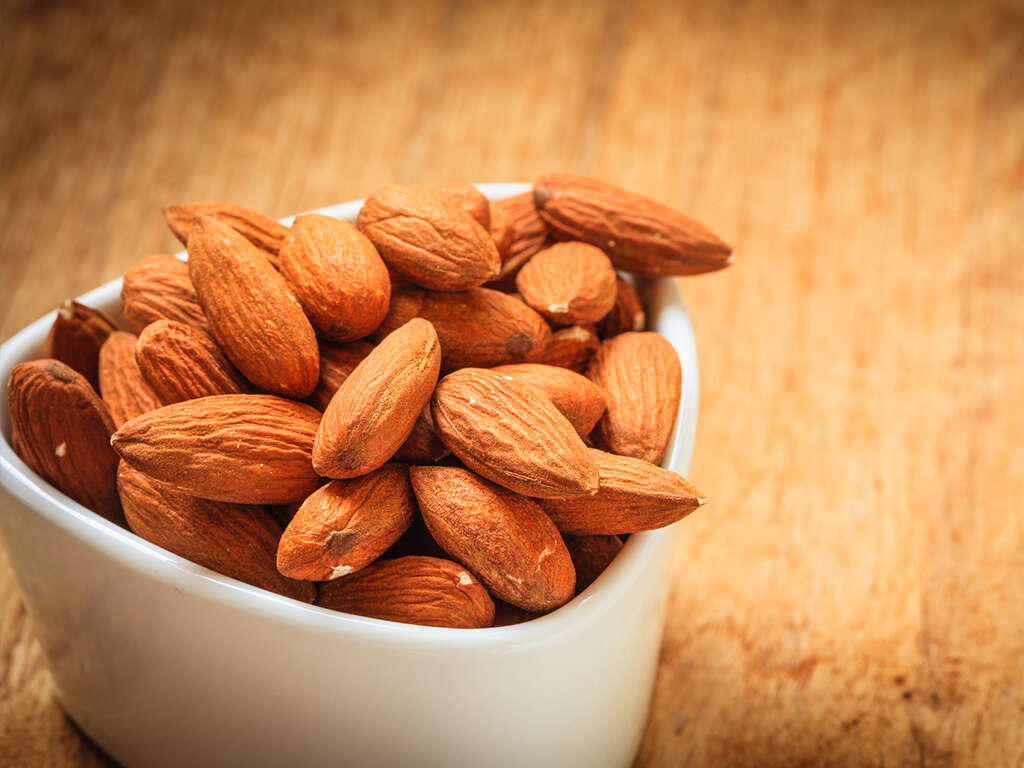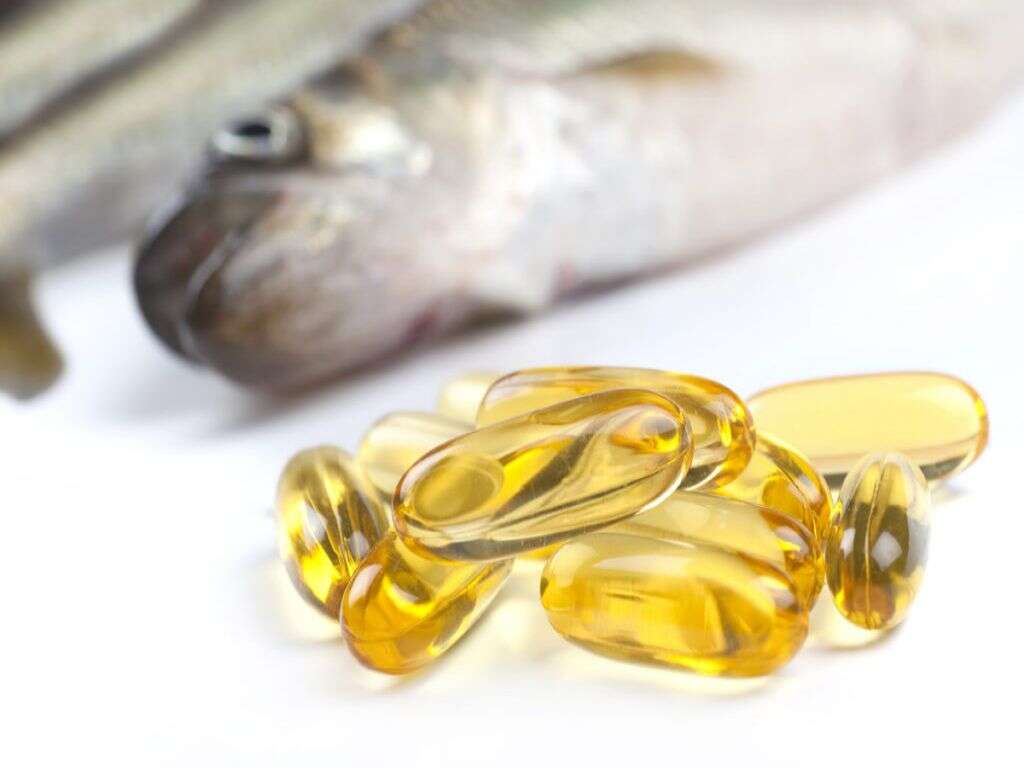Health Benefits of Sunflower Seeds
 Article Sources
Article Sources
- 1. Publishing, Harvard Health. 'Seed of the Month: Sunflower.' Harvard Health, www.health.harvard.edu/heart-health/seed-of-the-month-sunflower
- 2. 'How Potassium Can Help Control High Blood Pressure.' www.heart.org, www.heart.org/en/health-topics/high-blood-pressure/changes-you-can-make-to-manage-high-blood-pressure/how-potassium-can-help-control-high-blood-pressure#
- 3. I;, Singh U;Devaraj S;Jialal. 'Vitamin E, Oxidative Stress, and Inflammation.' Annual Review of Nutrition, U.S. National Library of Medicine, pubmed.ncbi.nlm.nih.gov/16011463/
- 4. 'FoodData Central Search Results.'FoodData Central, fdc.nal.usda.gov/fdc-app.html#/food-details/170562/nutrients
- 5. (PDF) 'THERAPEUTIC POTENTIAL OF SUNFLOWER SEEDS: AN OVERVIEW.' ResearchGate, www.researchgate.net/publication/275653985/THERAPEUTIC/POTENTIAL/OF/SUNFLOWER/SEEDS/AN/OVERVIEW
Planting a sunflower seed in the garden to see how big the bloom eventually grows can be a fun pastime. People sometimes overlook the health benefits that the seeds from this plant may provide. A single sunflower head can hold up to 2,000 seeds, all of which may be beneficial to a person's health.
The seeds can be found in various food items, such as bread and nutrition bars, but can also be eaten raw. Sunflower seeds are packed with nutrients that may provide a wide range of benefits, heart health, blood sugar control and promoting muscle growth and healthy skin.

Boost Heart Health
Sunflower seeds are rich in minerals, such as copper and magnesium, and are among the best sources of vitamin E. It's possible that increased intake of vitamin E may help reduce the likelihood of heart disease.1Publishing, Harvard Health. ‘Seed of the Month: Sunflower.’ Harvard Health, www.health.harvard.edu/heart-health/seed-of-the-month-sunflower Sunflower seeds are also high in healthy, unsaturated fats, which may help improve a person's heart health.
Adding seeds to a diet, including sunflower seeds, may reduce a person's risk of cardiovascular disease according to studies from Harvard University. Individuals consuming these nutritious seeds may reap other health benefits too, such as lower blood pressure and cholesterol levels.

May Help Prevent and Fight Sickness
Sunflower seeds can be a good source of zinc and selenium. These two minerals may play a role in fighting and preventing sickness. Zinc contributes to the body's immune system function, and it works as an antioxidant to fight off free radicals.
Selenium may help a person stay healthy due to its immune system-boosting abilities that help the body respond to any intruders, as well as its capacity to fight inflammation and infection.

Support a Healthy Pregnancy
Maintaining optimum blood pressure during pregnancy is vitally important. The potassium found in sunflower seeds helps regulate the sodium levels in the body, which may help keep high blood pressure in check.2‘How Potassium Can Help Control High Blood Pressure.’ www.heart.org, www.heart.org/en/health-topics/high-blood-pressure/changes-you-can-make-to-manage-high-blood-pressure/how-potassium-can-help-control-high-blood-pressure#
A woman's immune system may weaken during pregnancy. The phytochemicals found in sunflower seeds may help boost the immune system, increasing the body's ability to stay healthy throughout the pregnancy. The phosphorus and other minerals the seeds contain may also aid the unborn child's bone development.

May Reduce Inflammation
Chronic inflammation may cause serious health issues if it is not addressed. It may heighten the risk of someone developing diseases, such as diabetes, cancer and rheumatoid arthritis, as well as promote premature aging.
The vitamin E found in sunflower seeds may benefit individuals who suffer from short-term or chronic inflammation.3I;, Singh U;Devaraj S;Jialal. ‘Vitamin E, Oxidative Stress, and Inflammation.’ Annual Review of Nutrition, U.S. National Library of Medicine, pubmed.ncbi.nlm.nih.gov/16011463/ The flavonoids and other plant compounds found in sunflower seeds may further help reduce inflammation in the body.

Control Blood Sugar
People with diabetes need to control their blood glucose level to avoid complications, such as a hyperosmolar hyperglycemic state and ketoacidosis. Sunflower seeds may play a role in helping maintain optimum blood sugar levels.
These little black and white seeds are bursting with nutrients, such as several B and E vitamins, magnesium, zinc, protein, fiber and antioxidants, all of which may help control blood sugar levels. This effect on blood glucose may also be related to the plant compound chlorogenic acid found in sunflower seeds.

Support Muscle Growth
It's no secret that a healthy amount of protein is needed to help build muscle. Not only is it required for growth, but it's also essential for the repair of muscle tissue. Without protein, the body won't have the tools it needs to build new tissue.
Sunflower seeds may help provide this muscle-building tool, as they typically contain approximately 21 grams of protein in a single, 100-gram serving.4‘FoodData Central Search Results.’FoodData Central, fdc.nal.usda.gov/fdc-app.html#/food-details/170562/nutrients The seeds also contain thiamin (vitamin B1), which aids in the body's energy production.

May Reduce the Risk of Cancer
Sunflower seeds may help reduce the risk of breast cancer due to the presence of beta-sitosterol.5(PDF) ‘THERAPEUTIC POTENTIAL OF SUNFLOWER SEEDS: AN OVERVIEW.’ ResearchGate, www.researchgate.net/publication/275653985/THERAPEUTIC/POTENTIAL/OF/SUNFLOWER/SEEDS/AN/OVERVIEW According to preliminary studies, this phytosterol or plant sterol may help by hampering the growth of tumor cells, reducing the size of tumors and helping prevent metastasis.
The essential mineral selenium, which is found in sunflower seeds, may also help prevent cancer development due to its ability to induce DNA repair and synthesis in damaged cells.

Aid Weight Loss
The high nutrient content in sunflower seeds may help a person lose weight by giving them an increased feeling of fullness. Feeling full for longer may help a person avoid overeating at subsequent meals. The major ingredients in sunflower seeds are fat, protein and fiber, all of which may be considered filling.
Soluble fiber, which makes up about a third of the fiber found in sunflower seeds, may also help manage body weight by slowing digestion and increasing stool size.

Promote Healthy Skin
The selenium found in sunflower seeds may play a role in helping repair damaged skin cells. The high percentage of vitamin E the seeds contain may also contribute to healthier skin, as it's necessary for collagen and elastin production.
These components may also help prevent the appearance of fine lines, giving an individual tighter, firmer skin and a youthful glow. Because sunflower seeds are packed with fat-soluble antioxidants, they may also help reduce acne by improving the skin's barrier function.

How To Eat Sunflower Seeds
Sunflower seeds can be eaten in a number of ways after discarding the shell, either alone or in or on other foods. They can be mixed into homemade granola, blended into breakfast porridge or stirred into yogurt and other healthy snacks.
The seeds can be added to stir-fries or sprinkled on salads. They can be incorporated into homemade bread or muffins, or used in place of pine nuts in pesto. Sunflower seeds can even be ground up and used to top meat or fish.
